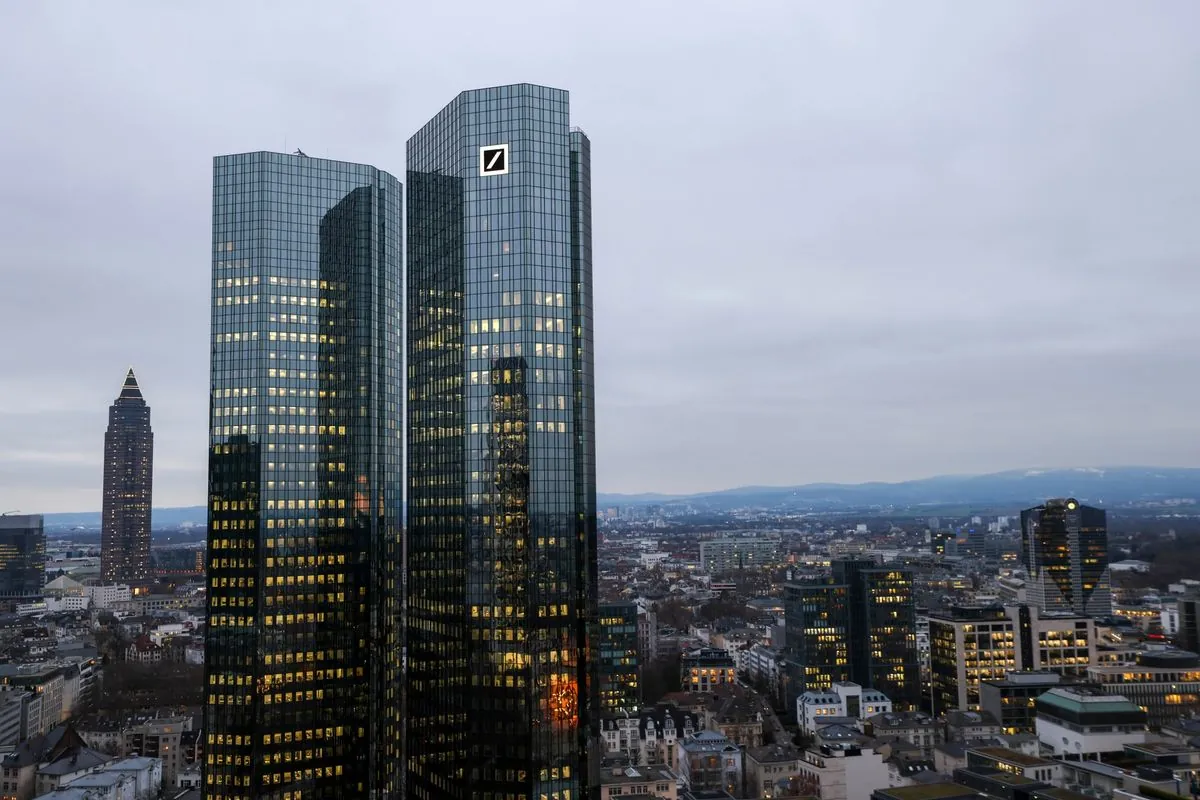Deutsche Bank has reached a settlement in a protracted legal battle stemming from its 2010 acquisition of Postbank, marking a significant development in the bank's ongoing efforts to resolve legacy issues. The case, which has been unfolding for 14 years, took an unexpected turn on August 21, 2024, when the bank announced an agreement with plaintiffs representing 60% of the claims.
The settlement amount was notably lower than anticipated, allowing Deutsche Bank to book a one-off gain of 430 million euros in its upcoming financial results. This development comes as a relief to investors, who have been closely monitoring the bank's legal risks and their potential impact on its financial performance.
The Postbank case highlights the complex nature of legal challenges faced by major financial institutions. The dispute centered on allegations that Deutsche Bank should have made a mandatory takeover offer at a higher price in 2009, rather than the voluntary offer made in 2010. This legal intricacy underscores the difficulties investors face in accurately assessing the potential outcomes of such cases.
"We are making clear progress towards our 2025 goal of clearing a 10% return on tangible equity, while using spare capital to repurchase shares."
The settlement's impact on Deutsche Bank's share price was immediate, with a 3% rise observed on August 22, 2024. This reaction demonstrates the significant influence that legal outcomes can have on investor sentiment and bank valuations. It's worth noting that Deutsche Bank, founded in 1870, has faced numerous legal challenges throughout its history, contributing to its complex risk profile.
Investors and analysts often struggle to accurately predict the outcomes of long-running legal disputes. The Postbank case exemplifies this challenge, as it bounced between various courts, including the Federal Court of Justice, Germany's highest court for civil and criminal matters. The complexity of such cases makes it difficult for banks to provide detailed disclosures without potentially compromising their legal position.
The banking sector's valuation often reflects the ongoing risk of legal wildcards dating back a decade or more. This uncertainty contributes to the sector trading at a discount compared to the broader market. For instance, Deutsche Bank's annual report includes extensive disclosures on various legal matters, ranging from the Postbank case to investigations related to Libor rigging and connections to controversial figures like Jeffrey Epstein.
As one of the largest banks in Europe by total assets, Deutsche Bank's legal challenges are closely watched by the financial community. The European Central Bank, which supervises significant eurozone banks, also keeps a close eye on such developments. The resolution of the Postbank case may provide some reassurance to investors, but it also serves as a reminder of the ongoing legal risks faced by major financial institutions.
